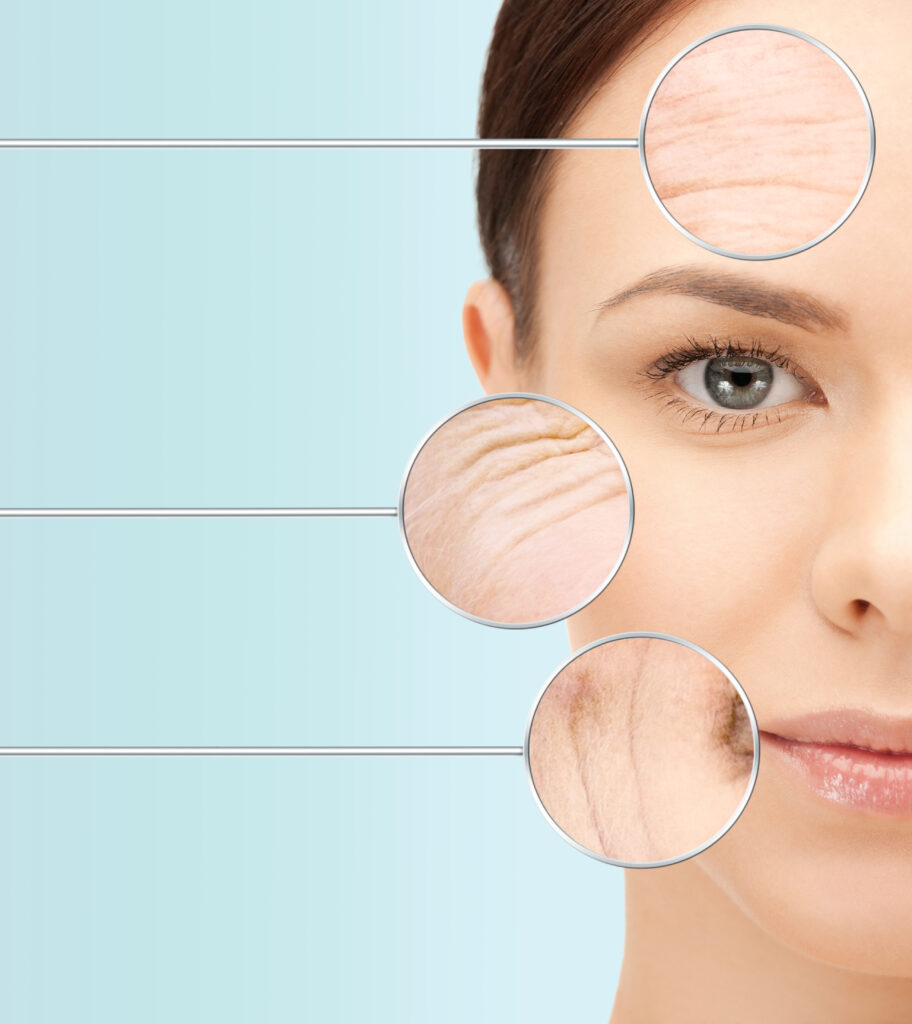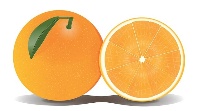
Author’s Note:
Gathered for you here are 11 cosmetic and personal care ingredient technologies that promise to drive innovation forward. Each item in the article below highlights a solution that captured my attention sometime during the first 6 months of 2025, so much so that all of these short items originally appeared in the Beauty Insights newsletter (which goes out to my list as a weekly email). NOTE: Dates and timeframes are relative to the publication date indicated at the end of each item.

Fast Funds
Regenerative skincare innovator Carmell Corporation has opted for Private Investment in Public Equity or PIPE funding “to support the continued commercial build out of our revolutionary bio-aesthetics product pipeline,” as Rajiv Shukla, Chairman of Carmell, told the press late last month.
PIPE funding gives private investors a discount on shares purchased and is a faster, more cost-effective way for companies like Carmell to raise capital. And that discount means investors get more profit for their purchase once the company does well.
Carmell—the consumer brand—is an innovator in the regenerative skincare space, specializing in secretomics (the study of proteins secreted by a cell or tissue). The brand’s hero ingredient is a platelet-enriched-plasma secretome, the extraction process for which took 7 years and more than $60 million to develop, according to the Carmell ecommerce site.
The company went public in September of 2023; and for the past 6 months, brand development expert Kendra Bracken-Ferguson has been CEO.
(originally published January 09, 2025)
Intermediate Innovation
This week, Korea-based LG Chem announced that production of its bio-acrylic acid will be at commercial scale in Q2.
“We expect bio-acrylic acid to be an innovative product that meets the sustainability needs of our customers and the market,” says Song Byung-Keun, Senior Vice President and Head of the Acrylates/SAP Business Unit at LG Chem, adding that, “We will continue leading the development of eco-friendly technologies.”
As for the chemical maker’s plant-based acrylic acid, the plan is to sell it into the North American and European markets with a focus on “sustainability-driven companies.”
And since acrylic acid is commonly used as an intermediary for the production of thickeners, stabilizing ingredients, and film formers, our industry is a likely customer: “The cosmetics industry, which increasingly demands plant-based and naturally derived ingredients without compromising functionality, is expected to be a key market for bio-acrylic acid,” affirms this week’s media release from LG.
LG Chem’s acrylic acid is coming from 3-Hydroxypropionic acid (3HP) that is produced using microbial fermentation. And the company is proud to note that the acid has been designated a USDA Certified Biobased Product.
(originally published February 13, 2025)
More Sugars, More Shapes

“With Galacan, we are redefining Beta Glucan innovation, offering enhanced bioavailability and functional benefits for supplements, foods and beverages, as well as excellent applications in beauty, personal care and animal nutrition,” says James Roza, Chief Scientific Officer at Layn Natural Ingredients, in Wednesday’s media release about the newly available cosmetic ingredient.
Layn Natural Ingredients is a China-based company established in 1995 with facilities in Asia, the EMEA Region, and the US.
(originally published February 27, 2025)
Sun Care Coating
“While hybrid sunscreens that mix two ingredients are already available, no product has achieved a perfect integration of organic and inorganic components.” This according to an unnamed spokesperson at Kolmar Korea, an original development manufacturer (ODM) serving the global cosmetics industry.
This week, the company introduced a new technology called UV-DUO PLUS that encapsulates inorganic sunscreen materials within organic sunscreen materials. And Kolmar Korea is confident that the tech has ready applications in both the domestic Korean market as well as in the international sun care marketplace.
According the company’s media release: UV-DUO PLUS is already patented in Korea and applications are in process for other markets. The “technology ensures even dispersion within formulations, eliminating aggregation and enhancing UV protection efficacy….[It] not only blocks UV rays efficiently but also targets long-wavelength UV (long UVA), which accelerates photoaging.” And clinical testing results demonstrate “technology improved long-wavelength UV blocking efficiency by 24.8% in the 400 nm range compared to conventional sunscreens.”
(originally published March 27, 2025)
Agtech Transfer

A deep-tech startup headquartered in Okinawa, Japan, makes a hydrogel from orange and banana peels. The super absorbent biodegradable polymer is most valuable in the agricultural and gardening industries, where it is being used to help hydrate plants and crops while at the same time reducing overall water consumption. In agricultural use, EF Polymer can hold nearly 50 times its weight in water.
In cosmetic product applications, it functions as a rheology modifier, swelling to thicken formulations.
This month, EF Polymer—the company that makes the material of the same name—announced a first close of its Series B funding round, amounting to 1bn Japanese Yen or about 6.6m in US Dollars.
Narayan Gurjar, who founded the company in 2018 in India and continues today as CEO of EF Polymer, tells the press, “This Series B funding marks a major step forward in scaling our solutions globally and building a truly circular, sustainable business. We’re excited to work with partners who share our vision and to continue creating long-term value for both society and the planet.”
And while he underlines the fact that “EF Polymer exists to solve water-related challenges and improve the lives of farmers, Gurjar also very much believes that this “technology can create sustainable impact across many industries.”
(originally published April 24, 2025)
Fragments for Skincare
“These findings suggest that microalgal-derived PDRNs have significant potential as sustainable and effective agents for clinical and cosmetic applications aimed at improving skin health and wound healing.” This is the concluding sentence of an abstract published earlier this year in the Archives of Dermatological Research by scientists from Eulji University, MoreChem Co., and Amorepacific.
This research started with the Korea-based beauty maker’s intention to develop PDRNs for use in medicine and skincare that were not sourced from salmon or other fish. In 2021 the Ministry of Oceans and Fisheries formalized its support of the marine bio market; and this research, “led by Amorepacific’s R&I Center,” was a part of the larger government initiative.
In this week’s press release, further publicizing their findings, Amorepacific underlines the “[successful development of] a production process for high-yield, low-molecular-weight, microalgal-derived PDRNs dubbed BluePDRN™, consequently shedding light on its mechanism of action and skin regenerative effects.”
Their ingredient is remarkably smaller than salmon-sourced PDRN (DNA fragments known as polydeoxyribonucleotides). Each molecule of salmon PDRN is 20 times larger than the microalgae-derived counterpart. But the mechanism of action is the same.
The Archives of Dermatological Research article, where the original findings are published, is called ‘Effects of Chlorella protothecoides-derived polydeoxyribonucleotides on skin regeneration and wound healing’.
Research continues at Amorepacific and a patent application has been filed.
(originally published May 01, 2025)
Irish Eyes

The eye care category is expanding. The Bausch + Lomb brand Lumify launched in 2018 with eyedrops that eliminate redness and has since added an eye area cleanser, eye cream, and brown/lash serum. Boutique brands like Sania’s Brow Bar in New York City sell brow shampoos. And any number of brands now offer topical creams and gels as well as patches to treat not only the undereye area and crow’s feet but also eye lids, eleven lines, and the full brow area.
So, it should come as no surprise that this week OPTASE, the dry eye management brand owned by Ireland-based Scope Health, has launched a topical Sensitive Eye Daily Renewal Cream that promises “instant hydration and protection for eyelids and skin around dry eyes.”
The brand has been selling an array of drops, gels, and reusable eye therapy masks since 2016. And, leveraging the OPTASE reputation in ophthalmological eye care, last summer they added a makeup remover to the product line.
In a press release about the new-this-week eye cream, Scope highlights statistics from Netherlands-based market research firm Metrixlab that imply a correlation between conventional beauty products and ocular surface concerns: “83% of women frequently experience eye issues such as dry, sensitive, watery, itchy eyes on a weekly basis, yet 79% continue to wear eye makeup and skincare regularly.”
Now, “as a brand dedicated to advancing eye health and comfort, we are thrilled to introduce another essential solution for those suffering from dry, sensitive eyes,” says Lin Yang, Brand Manager for OPTASE® LIFE, in her remarks to the press.
The newly launched eye cream, she says, “is a fast-acting, preservative-free eye cream that hydrates the sensitive eye area with the cleanest, gentlest ingredients. We’re proud to offer a product that finally allows everyone, even those with the most sensitive eyes, to confidently include effective eye care in their daily skincare routine.”
(originally published May 23, 2025)
Chemicals making Chemicals
Just last week, it was announced that the Texas City Industrial Park will be the first US site of an Again Bio CO₂ conversion facility, turning emissions generated by companies on site into chemicals for use in a spectrum of industries—including, of course, cosmetics.
The Texas City Industrial Park is home to manufacturing companies such as Marathon Petroleum which refines crude oil there; INEOS, a styrolution specialist that serves industry and has its own consumer brands like the INEOS Grenadier line of vehicles and INEOS Hygienics brand of household and personal care products; Dow Chemical is there. Cosmetic ingredient maker Ashland and industrial gas supplier Air Products, which also makes ingredients for our industry, are among industrial companies with facilities in the surrounding area.
Again Bio is a Denmark-based company established in 2020 and is expected to commission the new facility in Texas in Q4 of this year. A joint venture between Dow Inc. and Macquarie Asset Management called Diamond Infrastructure Solutions, established in 2023, is bringing Again to the industrial park to capture and convert CO₂ emissions on site.
According to a press release about the project, Again will turn this CO₂ into “sustainable chemicals, fertilizers, and building blocks for products, including plastics and other materials such as acetic acid, a base chemical used in adhesives, solvents, plastics, textiles, and cosmetics.”
In his remarks to the press Again Co-Founder Max Kufner calls the new facility “a major step forward in our mission to decarbonize chemical production and strengthen industrial supply chains.”
“We are excited,” he says, “to partner with Diamond Infrastructure Solutions on this project and to tap into on their long-standing industrial expertise and operational excellence to make this new facility a success.”
(originally published May 29, 2025)
A new Spin on Protein
This month, Canada-based biopolymer maker 3DBioFibR Inc. closed a $3m round of equity financing that means more space and more standards for the company’s production of collagen fibers.
Founded in 2020, the biotech research company uses a fully automated, patented dry-spinning technology to manufacture fibers that “closely replicate the structure, biomechanics, and biochemical properties of natural collagen structures,” according to the 3DBioFibR website.
And this same technology can be used to produce other biopolymers—think spider silk, fibrin, or chitosan (among others). The company’s tech is an improvement over wet spinning or electrospinning in that it yields stronger, more biocompatible fibers at “over 3,600 times the scale, with vastly improved uniformity and cost-efficiency.”
According to a press release circulated this month, 3DBioFibR has paid-development-partnerships with cosmetics companies and across other industry sectors such as apparel, medicine, tissue engineering, and more.
The new equity funding will be used to expand the company’s manufacturing capacity and to secure ISO 13485 certification as a clinical-grade medical and therapeutic biomaterial supplier.
Kevin Sullivan, CEO of 3DBioFibR, affirms that “This investment fuels the next phase of our growth. It enables us to meet growing demand from our commercial partners….” And he adds that, “We’re excited to expand our impact across industries that urgently need stronger, more sustainable biomaterials.”
(originally published June 12, 2025)
Micropowder for biodegradable Makeup

The biodegradable beauty revolution is coming. And ingredient makers are introducing new materials to help make it happen. On Wednesday, Eastman ramped up promotion for a newly launched ingredient they’re describing as a high-performance, readily biodegradable cellulose ester micropowder for use in color cosmetic product formulations.
The new Esmeri CC1N10 ingredient was developed expressly to align with EU regulations, which require that synthetic polymer microparticles do not persist in the environment, and for use in lip stick and complexion product formulas.
Esmeri CC1N10 is, according to this week’s media release, freshwater readily biodegradable, non-nano size, and comprised of 63% wood pulp from sustainably managed forests.
“We are proud to launch Esmeri CC1N10, showcasing our long-standing history and expertise with cellulosics technology,” says Chris Killian, a 20-year veteran of the company now serving as Eastman’s Senior Vice President and Chief Technology and Sustainability Officer, in his comments to the press this week.
“Esmeri,” he believes, “reflects our broader commitment to aligning growth with sustainability by advancing circularity and delivering high-performance materials that are better for people and the planet.” And Killian promises, there is “more to come across the personal care space.”
(originally published June 12, 2025)
Chirally correct specialty Chemicals
Late last week, US-based materials R&D platform XtalPi announced the acquisition of Liverpool ChiroChem—a deal that will purportedly speed up specialty chemical innovation.
To that end, the acquisition brings together not just two companies but two highly specialized technologies. Liverpool ChiroChem (LCC) has been, since its founding at the University of Liverpool in the UK, a leader in novel chiral molecule design and synthesis.
Chiral molecules mirror one another but are not identical. In skincare, for example, it’s common for one version of the molecule to be more or uniquely effective as an ingredient. LCC has amassed an immense virtual chiral library and developed what they call a Parallel Automated Chiral Engine (PACE), which “[delivers] a vast collection of unique, stereodefined, and diverse chiral building blocks,” according to a press release about the deal.
While “XtalPi’s R&D platform integrates quantum physics and AI predictions with large-scale automated chemistry experiments to generate, screen, and validate novel compounds with tailored physiochemical properties and molecular functionalities.”
Paul Colbon, CEO of LCC, believes that “the partnership of LCC and XtalPi creates a platform technology that has the potential to become the most powerful data engine in the world for chemical space exploration, fueling AI/ML models with large volumes of high-quality data in a fully integrated wet-dry lab cycle.” And a piece of this venture will be intelligent R&D for the cosmetics industry.
(originally published June 19, 2025)
Learn more about the Beauty Insights newsletter where these items originally appeared at https://www.deannautroske.com/subscribe

Deanna Utroske
As a regular contributor to this publication, Deanna writes the Global Perspectives column, covering cosmetic and personal care product formulation trends, emerging ingredient science, and ingredient marketing trends impacting the future of beauty around the world.



